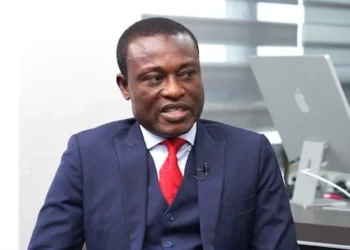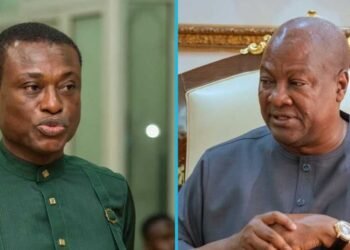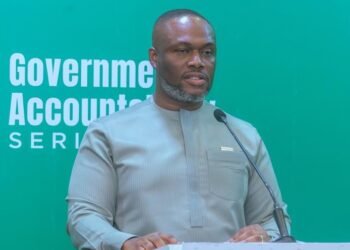The Ghana Power Generation Company (GPGC) has formally begun enforcement action against the Government of Ghana, after prolonged delays in the resolution of a $170 million arbitral award.
In a letter addressed to Ghana’s Minister of Finance, Hon. Dr. Mohammed Amin Adam, GPGC confirmed that it has filed the necessary legal documents in South Africa to enforce the award, following the government’s failure to respond to earlier correspondence.
The move comes in the wake of Ghana’s stalled settlement discussions with the power company, raising concerns about the country’s international standing and its potential vulnerability to the seizure of state assets abroad.
The letter, signed by Patrick Burke, Director of GPGC, and marked “Private and Confidential,” revealed that GPGC had taken the legal step of initiating enforcement proceedings in South Africa.
Enclosed with the letter were the legal filings, including the “Notice of Motion,” a “Founding Affidavit,” and a “Supplementary Affidavit,” which GPGC delivered as a courtesy, noting that formal service through diplomatic channels could take months.
“We can confirm that we have today filed the relevant papers to commence enforcement of the arbitral award in South Africa,” the letter stated, underscoring GPGC’s frustration with the Ghanaian government’s non-response to their earlier communication, dated September 20, 2024.
U.S. Subpoenas and Threat of Asset Seizures
In a clear sign that the company is ramping up pressure, GPGC also disclosed that it had issued subpoenas to 16 banks based in the United States.
These subpoenas seek to gather information on assets and funds related to Ghana that could potentially be targeted in the enforcement of the award.
“In addition to the 16 banks based in the United States that GPGC has subpoenaed (as evidence in the attached at Annex 2), we plan to issue further subpoenas to US-based corporations with ties to the Government of Ghana later this week, with further action to follow.”
Patrick Burke Director of GPGC
The mention of subpoenas targeting U.S. corporations signals GPGC’s intent to broaden its scope of legal action, with the potential for Ghanaian assets to be frozen or seized.
This could further strain Ghana’s international relationships and damage investor confidence, especially as the country grapples with economic recovery efforts and ongoing debt restructuring.

A Last-Minute Plea for Amicable Resolution
Despite the legal steps taken, GPGC reiterated its preference for a peaceful resolution to the matter, emphasizing that it would rather avoid further enforcement action.
Patrick Burke’s letter highlighted GPGC’s desire to execute the settlement agreement promptly and in accordance with the agreed payment schedule.
“We would nevertheless like to reiterate the message of our previous correspondence, that we would prefer not to take any further enforcement action and instead to resolve the matter amicably by fully executing the settlement agreement, as soon as possible, ideally within this week, and receiving payment in accordance with the agreed schedule”.
Patrick Burke, Director of GPGC
This plea reflects GPGC’s preference for a cooperative approach, even as it prepares for a drawn-out legal battle.
GPGC won the arbitral award against Ghana after the country’s termination of a power purchase agreement in 2018, which an international tribunal later ruled as wrongful, ordering Ghana to pay $170 million in damages.
Despite several months of negotiations and attempts to settle the matter amicably, GPGC’s patience appears to have run out.
The ongoing standoff over the arbitral award could have severe consequences for Ghana’s international reputation and fiscal stability.
The government’s failure to act promptly could lead to the seizure of assets abroad, which would further weaken its economic position.
Additionally, the subpoenas targeting U.S.-based corporations and banks with ties to Ghana indicate that the country’s financial transactions and assets are now under intense scrutiny, leaving little room for manoeuvre.
The gravity of the situation demands swift action to avoid further damage. Any delays in addressing the issue could exacerbate Ghana’s financial liabilities and complicate ongoing negotiations with international partners such as the International Monetary Fund (IMF).
READ ALSO: Analyst Warns: Political Tensions and December Elections Threaten Short-Term Market Stability























